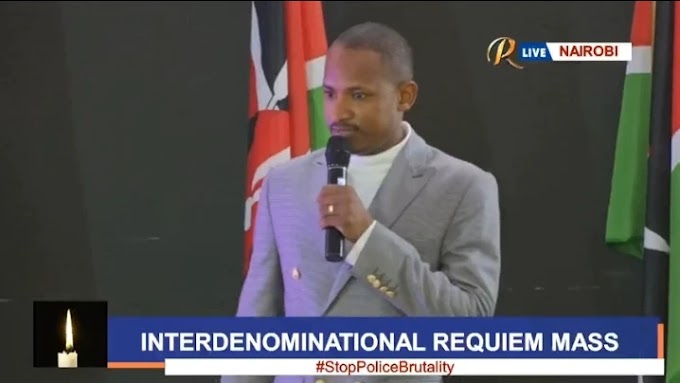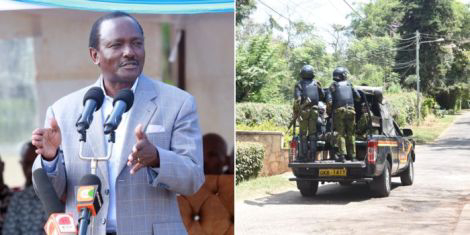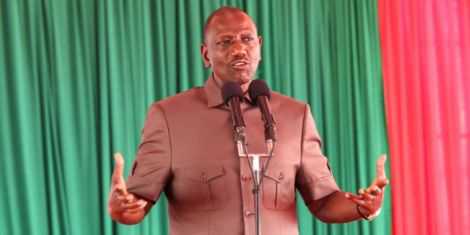Wiper Party leader, Kalonzo Musyoka, recently broke his silence regarding his house arrest, shedding light on the situation surrounding his confinement. This article explores Musyoka's remarks, highlighting his perspective on the circumstances leading to his house arrest and its implications for democracy and political rights in the country. Musyoka's response emphasizes the importance of upholding the rule of law and protecting the rights of individuals, even amid political tensions and disputes.
Unveiling the House Arrest:
Kalonzo Musyoka addressed the issue of his house arrest, shedding light on the events that led to his confinement. The Wiper Party leader expressed his disappointment in the situation, emphasizing the importance of respecting democratic principles and individual rights, regardless of political differences. Musyoka acknowledged that his confinement had raised concerns among his supporters and the general public.
Resisting Political Intimidation:
Musyoka firmly asserted that he would not be swayed by political intimidation or allow his confinement to deter his commitment to democracy and good governance. Despite the challenging circumstances, he vowed to continue championing the interests of his party and constituents. Musyoka emphasized the need for political actors to engage in constructive dialogue and peaceful resolutions, rather than resorting to tactics that undermine democratic principles.
Upholding the Rule of Law:
In addressing his house arrest, Musyoka stressed the importance of upholding the rule of law as a cornerstone of democratic societies. He expressed his belief that resorting to unlawful measures, such as restricting an individual's movement without just cause or due process, undermines the very essence of democracy. Musyoka called for a respect for the rule of law as the foundation for peaceful coexistence and political stability.
A Call for Dialogue and Peaceful Resolution:
Musyoka appealed for calm and urged all parties involved to embrace dialogue as a means of resolving political differences and conflicts. He stressed the power of peaceful resolutions and emphasized the need to prioritize the well-being of the nation and its citizens over individual political interests. Musyoka's call for dialogue reflects his commitment to fostering an inclusive and participatory political environment.
Protecting Democratic Rights:
The house arrest of Kalonzo Musyoka raises concerns about the protection of democratic rights, particularly the freedom of movement and expression. Musyoka's confinement underscores the need for individuals to express their political opinions without fear of retribution or persecution. It also highlights the importance of ensuring that political processes and actions are carried out within the boundaries of the law and uphold fundamental democratic values.
The Implications for Democracy:
Musyoka's house arrest highlights the delicate balance between maintaining law and order and protecting democratic rights. The treatment of political leaders has a significant impact on public perception and confidence in the democratic process. Ensuring that leaders are treated fairly and without undue restrictions fosters an environment of trust and legitimacy in the democratic system.
Conclusion:
Kalonzo Musyoka's response to his house arrest sheds light on the importance of upholding democratic principles, the rule of law, and protecting individual rights. His call for dialogue and peaceful resolutions highlights the need for constructive engagement among political actors to resolve disputes. Musyoka's situation serves as a reminder of the importance of ensuring that political processes and actions are carried out within the boundaries of the law, without suppressing the fundamental rights of individuals. Upholding democratic values and fostering an inclusive political environment form the basis for a peaceful and prosperous society.






.jpg)








